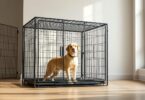What if the joy of owning a playful companion comes with hidden expenses many don’t anticipate? French Bulldogs charm families with their affectionate nature and compact size, but their financial requirements often surprise even seasoned pet lovers. This guide breaks down every dollar involved in raising these popular “frenchies,” from adoption fees to lifelong care.
Owning a bulldog breed involves more than an initial price tag. Reputable breeders prioritize health testing and ethical practices, which influences upfront costs. Prospective owners must also budget for veterinary care, quality food, and pet insurance—expenses that add up over time.
These adaptable dogs thrive in apartments and urban settings, making them ideal for city dwellers. However, their unique needs—like temperature sensitivity and potential breathing issues—require specialized attention. This article combines 2023-2025 market data with expert insights to help you plan a realistic budget.
Whether you’re exploring adoption or evaluating breeder options, understanding the full financial picture ensures a happy, healthy life for your future companion. Let’s dive into the numbers and strategies for responsible ownership.
Understanding the French Bulldog Breed
With their bat-like ears and compact frames, French Bulldogs trace their roots to 1800s Europe. Originally bred from English Toy Bulldogs and Parisian ratter dogs, these companions became favorites among lace workers relocated to France. Their evolution created a sturdy yet affectionate breed weighing under 28 pounds—perfect for cozy spaces.
Breed Characteristics and History
Known for clownish charm, Frenchies blend stubbornness with loyalty. Their short coats and minimal shedding suit busy households. The American Kennel Club ranks them as the #1 most popular dog breed since 2022, reflecting their adaptable nature. Lifespans average 10-12 years, though brachycephalic traits require climate-controlled environments.
Why Frenchies Are Popular in the U.S.
Urban dwellers adore these dogs for quiet demeanors and low exercise needs—20-minute walks suffice. Apartment-friendly sizes and social personalities make them ideal for city life. Their expressive faces and loyalty drive demand, with 1 in 5 pet seekers considering the breed according to Canine Journal.
While their playful antics win hearts, prospective owners should note their sensitivity to heat and potential health investments. This balance of charm and care requirements defines the Frenchie experience.
how much are french bulldogs: Breaking Down the Price
Prices for these compact companions vary wildly – from $1,500 for basic adoption to $30,000 for rare-colored puppies. A 2023 AKC survey shows 78% of buyers pay between $3,000-$8,000, influenced by breeder reputation and location.
Three elements drive costs upward. First, coat colors like lilac or blue command premiums – standard fawn pups cost 40% less than merle varieties. Second, urban breeders in cities like NYC often charge 25% more than rural counterparts. Third, health-tested parents add $1,000+ to initial pricing.
Demand plays a key role. Waitlists at ethical kennels stretch 6-12 months, letting top breeders set higher rates. However, PetMD warns against “discount” sellers skipping genetic screenings – a decision that risks $10k+ in future vet bills.
Smart buyers balance upfront expenses with lifetime value. While adoption fees start at $800 through rescues, puppies from certified sources typically include vaccinations and microchipping. This reduces first-year setup costs by 15-20%.
Initial Investment: Purchase, Adoption, and Setup Costs
Choosing between a breeder and adoption shapes both your budget and your future pet’s well-being. Ethical breeders typically charge $1,500 to $8,000 for a french bulldog puppy, reflecting health screenings and quality care. Adoption fees through shelters average under $500, offering a compassionate alternative for budget-conscious families.
Puppy Purchase vs. Adoption Options
Higher breeder prices often include vaccinations, microchipping ($60-$80), and genetic guarantees. These perks reduce first-year veterinary bills by 15-20%. Adoption, while affordable, may involve unknown medical histories—factor in potential check-up costs upfront.
Essential Supplies and Home Setup
New owners spend $400-$500 initially on must-haves. A sturdy crate, orthopedic bed, and durable leash form the foundation. Food bowls designed for flat-faced breeds and temperature-monitoring tools add to startup costs.
Smart planning bridges initial expenses with long-term care. Whether adopting or purchasing, prioritize transparency about the puppy’s health background. This investment lays the groundwork for a thriving companion.
Ongoing Expenses: Food, Grooming, & Healthcare
Smart budgeting for your Frenchie’s daily needs ensures their health and happiness for years to come. Three areas demand consistent investment: nutrition, coat maintenance, and medical care. Let’s explore what these recurring costs look like in practice.
Monthly Food, Treats, and Grooming
Quality food forms the foundation of your dog’s well-being. Owners typically spend $30-$40 monthly on high-protein kibble formulated for flat-faced breeds. Treats add another $10-$15, while specialized shampoos and wipes help manage skin folds.
Professional grooming sessions cost $30-$40 each. Most Frenchies need these every 6-8 weeks to maintain coat health. Annual grooming expenses average $240-$320, depending on your location.
Routine Veterinary Check-Ups
Annual vet visits run $500-$1,000 for core vaccines, parasite prevention, and dental checks. Brachycephalic breeds often require extra respiratory exams, adding $150-$300 yearly. Emergency funds or pet insurance help manage unexpected vet bills.
Preventative care reduces long-term health risks. Many owners allocate $50 monthly for joint supplements and allergy medications. Pet insurance plans covering 70-90% of costs provide financial safety nets for hereditary conditions.
Costs fluctuate based on individual needs, but proactive care minimizes surprises. Balancing quality with affordability keeps tails wagging without breaking the bank.
Special Medical Considerations for French Bulldogs
Flat faces and compact bodies give these dogs their signature look but create unique health challenges. Understanding these risks helps owners prepare financially and emotionally for their companion’s needs.
Common Health Issues and Genetic Concerns
Brachycephalic Syndrome tops the list, causing narrowed airways and breathing struggles. Over 60% develop this condition, per veterinary studies. Hip dysplasia affects 1 in 4 due to their stocky build, while skin allergies plague 30% of the breed.
Responsible breeders reduce risks through genetic testing and selective pairings. Always request OFA certifications for joints and breathing when choosing a puppy. Early intervention during the average 10-12 year lifespan significantly improves outcomes.
Treatment Costs for Breathing and Joint Issues
Stenotic nares correction runs $300-$1,200, while soft palate resection costs $2,000-$4,500. Hip dysplasia treatments range from $500 for pain management to $7,000+ for advanced surgery.
Routine vet visits ($80-$150 each) help catch problems early. Budget $1,200-$3,000 annually for ongoing care. Pet insurance covering 80% of costs reduces financial stress when unexpected issues arise.
Proactive planning turns health challenges into manageable routines. By prioritizing preventative care and understanding treatment options, owners ensure their companions thrive despite genetic predispositions.
Factors Influencing French Bulldog Prices
Multiple factors converge to shape the cost structure of these compact canines. From biological hurdles in reproduction to market-driven preferences for aesthetics, each element plays a role in determining what owners pay.
Breeding Challenges and Reproduction Costs
Narrow hips make natural births nearly impossible for most french bulldogs. Over 80% require cesarean sections, costing breeders $2,000-$5,000 per litter. Artificial insemination adds $1,500-$3,000 due to specialized veterinary procedures.
Ethical breeders invest in genetic screenings and post-operative care. These practices elevate puppy prices but reduce long-term health risks. Reproduction complexities explain why breeding costs account for 40-60% of initial pricing.
Rarity of Coat Colors and Unique Traits
Standard fawn pups typically cost $3,000, while merle varieties reach $10,000. Rare colors like lilac or blue command 50-150% premiums due to recessive gene combinations. Unique markings such as fluffy coats or blue eyes further increase value.
Demand often outpaces supply for these traits. However, reputable sources charge higher prices responsibly—testing for color-linked health issues like deafness. Understanding these factors helps buyers assess fair market value versus unethical markup.
Comparing Breeder vs. Adoption Options
Choosing where to get your Frenchie requires balancing ethics, budget, and long-term health considerations. Reputable breeders typically charge $3,000-$8,000, while adoption fees average under $500. Breeder prices often include health guarantees and early veterinary care, whereas rescues may involve unknown medical histories.
Questions to Ask a Reputable Breeder
Always verify breeder credentials before committing. Ask for proof of genetic testing for parents, especially for breathing and joint issues. Request vaccination records and inquire about socialization practices. Ethical breeders willingly share puppy-raising environment details and offer post-purchase support.
Red flags include unwillingness to show breeding facilities or pressure to pay deposits quickly. Trustworthy sources provide OFA certifications and answer questions about their dogs’ temperaments. They often interview buyers to ensure suitable matches.
Adoption offers cost savings but requires flexibility. Rescue dogs may need behavioral training or specialized care. Whether buying or adopting, prioritize transparency about the dog’s background. This upfront effort reduces surprise expenses and supports responsible pet ownership.
Insurance Insights: Safeguarding Your Frenchie’s Health
Protecting your Frenchie’s health requires more than love—it demands smart financial planning. Pet insurance acts as a safety net against unexpected vet bills, especially for breeds prone to breathing issues and allergies. With 64% of dog owners facing at least one emergency annually, coverage transforms unpredictable costs into manageable payments.
Benefits of Pet Insurance Policies
Leading providers like Lemonade offer accident coverage starting at $30/month, with illness protection adding $10-$15. Policies typically reimburse 70-90% of costs after deductibles ($250-$500). Comprehensive plans cover hereditary conditions common in frenchies, including hip dysplasia treatments averaging $3,500.
Many insurers now offer wellness add-ons for $18-$25/month. These cover routine care like vaccinations and dental cleanings. Early enrollment locks in lower rates—puppies under 12 months see 22% lower premiums than older dogs according to ValuePenguin data.
When to Enroll Your Puppy for Maximum Coverage
Sign up before your dog’s first vet visit to avoid pre-existing condition exclusions. Most providers impose 14-day waiting periods for illnesses. Accident coverage often starts within 48 hours, making immediate enrollment crucial.
Insurers like Embrace report 41% of claims involve conditions appearing before age three. By securing coverage during puppyhood, owners ensure lifetime protection against developing health issues. Compare policies using tools like Pawlicy Advisor to find breed-specific plans with breathing disorder coverage.
Budgeting Tips for Prospective French Bulldog Owners
Creating a realistic financial plan for these companions involves more than adding initial purchase costs. Lifetime expenses for owning a French Bulldog range from $15,000 to $35,000, according to 2024 data from the American Pet Products Association. This wide span accounts for variables like geographic location, health history, and lifestyle choices.
Long-term Cost Planning and Hidden Expenses
Start by separating one-time purchases from recurring bills. Initial setup costs typically consume 15-20% of the total budget, while food and healthcare dominate ongoing expenses. Emergency vet visits for breathing issues or allergies often add $2,000-$5,000 unexpectedly—a key reason 38% of owners use dedicated savings accounts.
Digital tools simplify tracking. Apps like Pet Budget allocate funds for grooming, insurance premiums, and seasonal needs. Spreadsheets work well for visualizing annual patterns, especially for temperature-controlled bedding replacements or allergy medication refills.
Industry surveys reveal 52% of Frenchie owners underestimate dental care and prescription diet costs. Review insurance policies carefully—plans covering hereditary conditions reduce financial stress during health crises. Comparing deductibles and coverage caps helps balance monthly premiums with potential out-of-pocket costs.
Proactive planners save 23% more over their dog’s lifetime than reactive spenders. Setting aside $100 monthly creates a $12,000 safety net over a decade. This disciplined approach transforms unpredictable expenses into manageable commitments, ensuring your companion thrives without compromising your financial stability.
Lifestyle and Care: Ensuring a Happy French Bulldog
Urban environments suit these compact companions perfectly. Their moderate exercise needs—about 20-30 minutes daily—fit busy schedules. Short walks around the block or indoor play sessions keep them content without overtaxing their breathing systems.
Thriving in Concrete Jungles
Apartment dwellers appreciate the breed’s quiet nature and space efficiency. A 2024 Animal Wellness Magazine study found 82% of city-based owners report their pets adapt well to smaller homes. Cooling mats and air-conditioned spaces help manage heat sensitivity during summer months.
Mental stimulation proves crucial for this intelligent breed. Puzzle toys with hidden treats prevent boredom, while scheduled socialization builds confidence. Weekly brushing sessions control minimal shedding—a bonus for tidy urban spaces.
Routine vet visits address common issues early. Many owners combine check-ups with nail trims to streamline care. For separation anxiety, gradual alone-time training paired with calming music reduces stress during work hours.
As a popular dog choice for metropolitan areas, their low-energy charm comes with responsibility. Consistent routines and climate awareness create ideal living conditions. With proper care, these adaptable pets flourish as loyal urban companions for years.
Wrapping Up Your French Bulldog Investment Journey
Welcoming a Frenchie into your home brings endless joy but requires thoughtful preparation. These loyal companions thrive when owners balance upfront costs with lifelong care strategies. Initial investments range from $1,500-$8,000 for ethically bred puppies, while lifetime expenses often exceed $15,000 due to specialized health needs.
Smart ownership starts with three priorities:
Prioritize breeders who test for breathing and joint issues.
Enroll in pet insurance before your bulldog’s first vet visit.
Budget $100-$150 monthly for food, grooming, and preventive care.
Costs vary based on coat colors, location, and breeding practices. Rare traits might increase the price, but responsible sourcing prevents future financial strain. Regular check-ups and climate-controlled environments help manage common health risks.
While the journey demands careful planning, the rewards outweigh the challenges. Informed owners create thriving environments where frenchies flourish. Their affectionate nature and adaptable personalities make every investment worthwhile – a lifetime of companionship built on smart choices and heartfelt care.
FAQ
What factors make French Bulldogs more expensive than other breeds?
High demand, breeding challenges (like artificial insemination costs), and rare coat colors (chocolate, blue) drive prices up. Reputable breeders also invest in health testing and ethical practices, adding to initial costs.
Are French Bulldogs prone to specific health problems?
Yes. Brachycephalic syndrome, hip dysplasia, and skin allergies are common. Regular vet check-ups and pet insurance help manage these risks, which can otherwise lead to costly treatments.
How does coat color affect a Frenchie’s price?
Rare colors like lilac or merle can double or triple costs due to their uniqueness. However, some rare hues are linked to genetic health issues, so prioritize breeders who conduct DNA testing.
Is pet insurance worth it for French Bulldogs?
Absolutely. Policies from providers like Nationwide or Healthy Paws offset expenses for breathing issues, surgeries, and medications. Enroll early to avoid pre-existing condition exclusions.










Leave a Comment